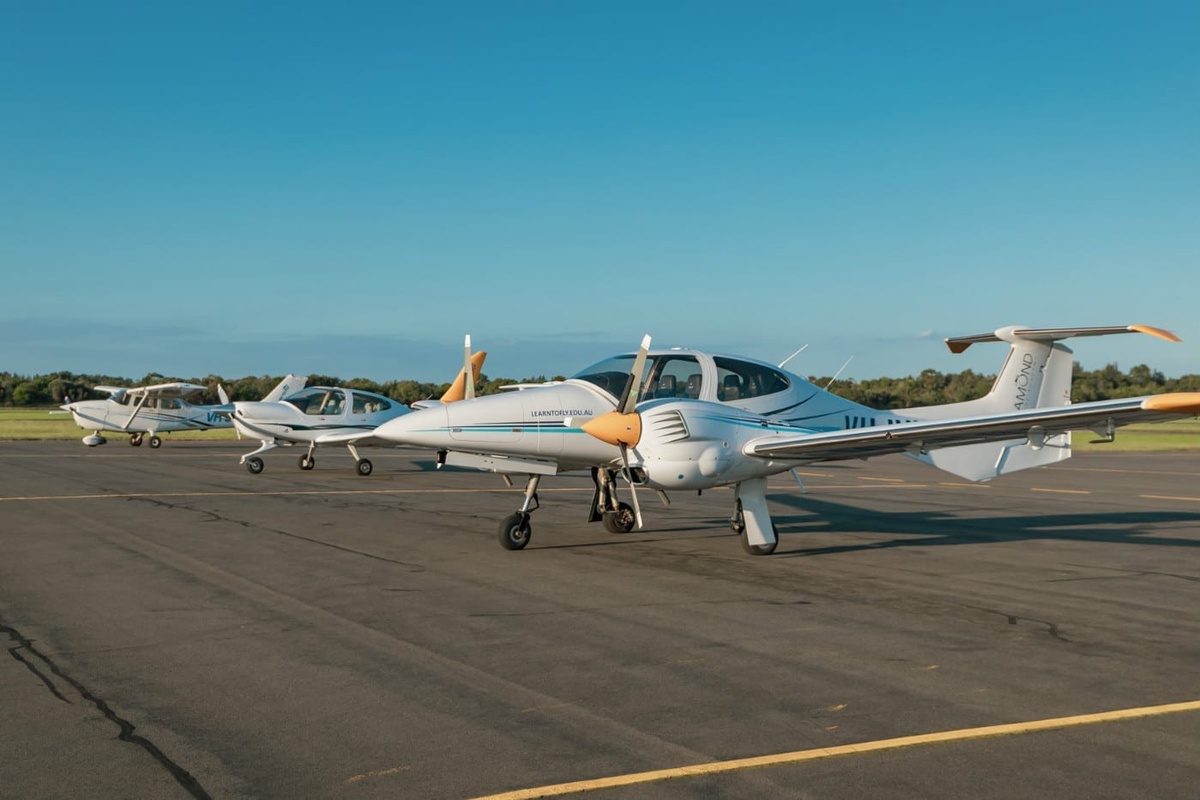The Bachelor of Aviation in Australia is a prestigious academic pursuit that opens up the door to a myriad of exciting career opportunities in the aviation industry. A comprehensive programme, it equips students with extensive knowledge and a wide variety of skills that are necessary to take to the skies and embark on a rewarding career as a pilot.
However, there are a number of other career paths that graduates can pursue after completing their degree which we will explore in this blog.
Understanding the Bachelor of Aviation in Australia
The course is a specialised undergraduate degree which is designed to prepare students for a diverse range of roles in the aviation industry. There are many universities and institutions across the country offering the programme that students meeting the entry requirements can choose from.
All of these combine theoretical knowledge with practical training and it typically takes three years to complete the degree, however there are variations in this depending on the exact course title.
Modules covered in the course
The curriculum is carefully structured to cover a wide range of topics essential for aspiring aviation professionals. One of these is a foundational module called aviation fundamentals which introduces students to the basics of aviation including the history, principles of flight and key terminology. It’s crucial that students get to grips with these basics so that they can build upon that knowledge in more advanced classes.
Students will also dive into the intricacies of aircraft systems, learning about the various components that make a plane fly and how they operate in their aircraft systems and operations module. This generally covers aircraft maintenance and safety procedures as well, although this will be taught in more detail in the regulations and safety procedures module.
More technical modules such as navigation and air traffic management will also be covered. These explore air traffic control, flight mapping and navigation techniques. Meteorology classes are also part of the course as the weather plays a significant role in aviation and it’s important that students can interpret weather patterns and forecasts.
Some of the more practical elements of these degree programmes include aerodynamics and aircraft performance modules which try to instil a deep understanding of how aircraft generate lift and factors that affect their performance. Students will also spend time in flight simulators and doing flight plan exercises to apply their knowledge in a controlled environment.
Career paths for graduates
Upon completion of the Bachelor of Aviation, graduates will have a plethora of exciting career paths to explore.
Many who complete this BA Aviation or a cadet pilot programme move straight into commercial flying and sign a work contract with an airline, a charter company or a freight carrier. Many airlines offer their own cadet programmes that will provide students with a structured pathway to complete the necessary training hours.
Air traffic controllers play a critical role in ensuring the safe and efficient flow of aircraft and this is another career path open to graduates. Those with a deep understanding of navigation and traffic management may be particularly suited to working in this field.
The work of a flight dispatcher is similar to that of an air traffic controller and it is another career that is open to graduates. In this type of role, you would work closely with pilots to plan flight routes, calculate fuel requirements, monitor weather conditions and ensure smooth and efficient flight operations.
If you’re interested in the aerodynamics and mechanical structure of planes, you may be suited to a career as an aerospace engineer. These specialised engineers design and develop the aircraft and ultimately make huge contributions to the advancement of aviation technologies.
Many of those who complete the bachelor programme move into a job as an aircraft maintenance engineer. In this role, they are responsible for inspecting, repairing and maintaining aircraft to ensure they remain in a safe operating condition, a crucial part of aviation safety.
Another safety-related role is the job of an aviation safety inspector. Working for a regulatory body, these inspectors ensure that airlines and aviation organisations comply with the rules and enforce high safety standards.
Those who excel in the leadership and management skills area of the degree may choose to pursue a career in aviation management, where they would oversee airline operations or airport logistics.
The Bachelor of Aviation in Australia is a gateway to a world of opportunities in the dynamic and ever-evolving aviation industry. With an extensive curriculum that covers both classroom-based and practical skills, graduates are well-prepared to excel in their chosen career path. Whether you aspire to become an air traffic controller, or an engineer or take on a different role altogether, this degree can offer the pathway to navigating the skies with confidence. The sky isn’t the limit, it’s the beginning of a fulfilling career in aviation.


No comments yet